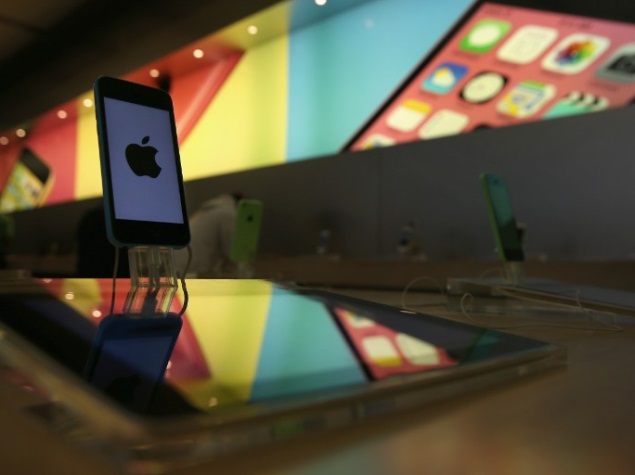- Home
- Others
- Others News
- Apple Store Design Worthy of Trademark: EU Court
Apple Store Design Worthy of Trademark: EU Court

In 2013, after two years of trying, iPhone-maker Apple successfully registered the design of its stores with the United States patent office, and then set out to extend the trade mark internationally.
Germany, the European Union's biggest market, refused the patent saying there was nothing unique to the store design and that the request was groundless.
Apple appealed its case with a German patent court which requested a binding opinion from the European Court of Justice on whether a store design could be trademarked without any indication of size or proportion.
In its response Thursday, the court said that the layout of a store could constitute a trademark using only "an integral collection of lines, curves and shapes" as long as it "departs significantly" from the norms of the economic sector concerned.
The court added however that the uniqueness of a design must be assessed on a case-by-case basis, taking into account competing stores and the shifting expectations of shoppers.
It is now up to the German national court to rule on Apple's individual case, in line with the EU court opinion.
Apple stores have become a ubiquitous presence in shopping malls worldwide, with the emergence of down-to-the-detail copycat shops in China selling fake Apple products and services.
The stores have already secured US patents for features including glass staircases, multi-tiered shelving along the rear walls, and oblong table with stools at the rear.
Catch the latest from the Consumer Electronics Show on Gadgets 360, at our CES 2026 hub.
Related Stories
- Samsung Galaxy Unpacked 2025
- ChatGPT
- Redmi Note 14 Pro+
- iPhone 16
- Apple Vision Pro
- Oneplus 12
- OnePlus Nord CE 3 Lite 5G
- iPhone 13
- Xiaomi 14 Pro
- Oppo Find N3
- Tecno Spark Go (2023)
- Realme V30
- Best Phones Under 25000
- Samsung Galaxy S24 Series
- Cryptocurrency
- iQoo 12
- Samsung Galaxy S24 Ultra
- Giottus
- Samsung Galaxy Z Flip 5
- Apple 'Scary Fast'
- Housefull 5
- GoPro Hero 12 Black Review
- Invincible Season 2
- JioGlass
- HD Ready TV
- Laptop Under 50000
- Smartwatch Under 10000
- Latest Mobile Phones
- Compare Phones
- Motorola Signature
- Vivo Y50e 5G
- Vivo Y50s 5G
- Realme 16 Pro+ 5G
- Realme 16 Pro 5G
- TCL Nxtpaper 70 Pro
- OPPO A6 Pro 5G
- Honor Power 2
- Lenovo Yoga Slim 7x (2025)
- Lenovo Yoga Slim 7a
- Realme Pad 3
- OPPO Pad Air 5
- Xiaomi Watch 5
- Huawei Watch 10th Anniversary Edition
- Acerpure Nitro Z Series 100-inch QLED TV
- Samsung 43 Inch LED Ultra HD (4K) Smart TV (UA43UE81AFULXL)
- Asus ROG Ally
- Nintendo Switch Lite
- Haier 1.6 Ton 5 Star Inverter Split AC (HSU19G-MZAID5BN-INV)
- Haier 1.6 Ton 5 Star Inverter Split AC (HSU19G-MZAIM5BN-INV)

















